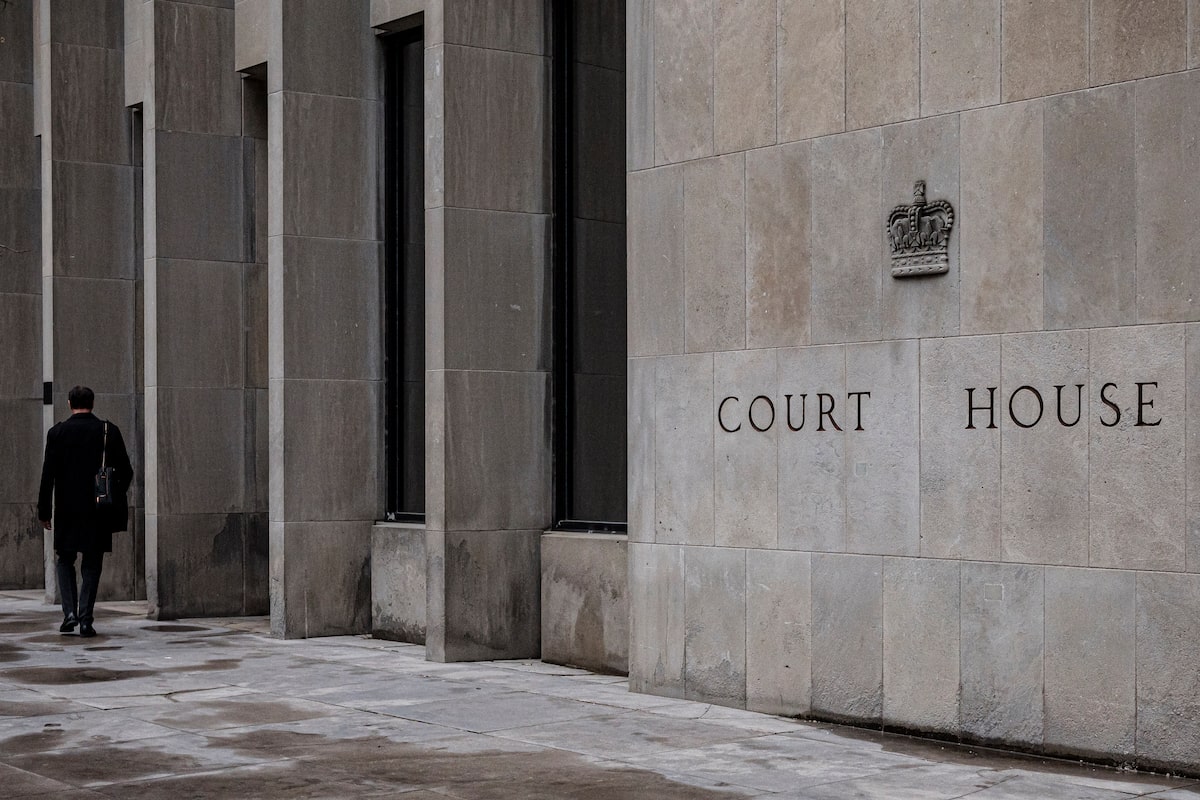The sale of the Libfeld property empire was ordered by an Ontario Superior Court judge in 2021.Christopher Katsarov/The Canadian Press
The sale of the multibillion-dollar real estate empire assembled by Toronto’s Libfeld family has begun more than four years after it was first ordered by a judge, the final stage of an acrimonious battle between four brothers who inherited the sprawling portfolio from their father.
Up for sale is one of the largest property portfolios from a single source seen in Ontario in recent years, with 61 individual sites, 884 acres of development land and 1.4-million square feet of commercial space. Across the properties there is planning potential to build as many as 16,000 units of high-density housing.
When the sale was ordered by an Ontario Superior Court judge in 2021, the Conservatory Group’s real estate assets were judged to be worth anywhere between $2-billion to $4-billion. Where those valuations sit today in an environment in which commercial real estate activity is down dramatically will be a question the marketplace will answer.
Toronto office landlords reduce tenant incentives as demand for space rises
“It’s interesting it’s coming out now based on where the market is … some of these are good parcels, some of these properties are challenging,” said Ray Wong, head of data solutions for real estate research company Altus Group.
Mr. Wong said it is unusual for such a large portfolio – which makes up 5 per cent of all the inventory across the Greater Toronto and Hamilton Area – to come up for sale all at once, particularly since it’s not as a result of an economic failure such as a bankruptcy or insolvency.
Teodor (Teddy) Libfeld was a survivor of the Auschwitz concentration camp who built a real estate empire after immigrating to Canada in 1951, making his four sons partners by the 1980s and leaving them with equal shares and control of the Conservatory Group after his death in 2000. The brotherly pact seemed to work at first, but barely a decade later, it began to come apart under the stress of financial and estate planning disagreements, among other points of contention.
“Many of the disputes and altercations were petty in nature and involved inappropriate behaviour. The amount of time spent at trial on these disputes only solidified my findings that the Libfeld brothers cannot carry on working together,” Ontario Superior Court Justice Thomas McEwen wrote in his 2021 ruling ordering the sale of the assets.
Now that the higher court appeals of Justice McEwen’s decision have been exhausted – including an attempt to get the ruling altered at the Supreme Court of Canada, which dismissed the appeal in 2024 – the sales process is being run by Ernst & Young Inc. under its EY Parthenon brand.
The delays in bringing the portfolio to market have largely been legal, with fresh court challenges to the sales process being filed or withdrawn as recently as this October. Court records show the final matter to be resolved had to do with equitable access to the “data room” in which the bid information will be kept for all the parties to review.
The Libfeld brothers have long talked about wanting to be bidders on the portfolio as well.
“Jay and Sheldon Libfeld are looking forward to EY, the court-appointed sales officer, running a vigorous sales process for these properties and can confirm, as they have communicated to EY and the court for some time now, that they intend to participate as a bidder in the process through the Allister Group of Companies,” said Gary Luftspring, a lawyer with Ricketts Harris LLP who represented two of the four brothers.
Ten charts that explain Canada’s messy and complicated housing markets
The Globe and Mail sought comment from lawyers for Mark Libfeld and Corey Libfeld, but the lawyers didn’t respond by press time.
Mr. Wong’s research shows the market the Conservatory sale faces a tougher market for some of its assets than for others, with spending in the Toronto region varying widely on residential land versus retail and industrial uses. According to Altus, spending on commercial retail sites (the Conservatory portfolio has nine strip mall or plaza retail sites) is actually up 22 per cent in so far in 2025, with $2.7-billion in transactions, up from $2.2-billion in 2024. Meanwhile, investments in residential development land are down 45 per cent, from $3.3-billion in 2024 to $1.8-billion in 2025.
The Conservatory package also has six rental apartment buildings with almost 1,800 units for sale, but the value of transactions of apartment properties has fallen 32 per cent from $2.5-billion in 2024 to $1.7-billion in 2025.
“If you look at some of the portfolio sales in the past, it could be one or two buyers keeping the core assets and selling off the assets they don’t want. That way, you’re in control of what assets you actually want,” said Mr. Wong. But the challenges for any bidder in valuing the parts of that portfolio are many: from jitters over the trade war and the economy to potentially game-changing new government policies on housing that could revive the stagnant condo market or transform rental building incentive structures.
“We’re dealing with almost monthly changes that will play into whoever is looking at these assets as well,” said Mr. Wong.

